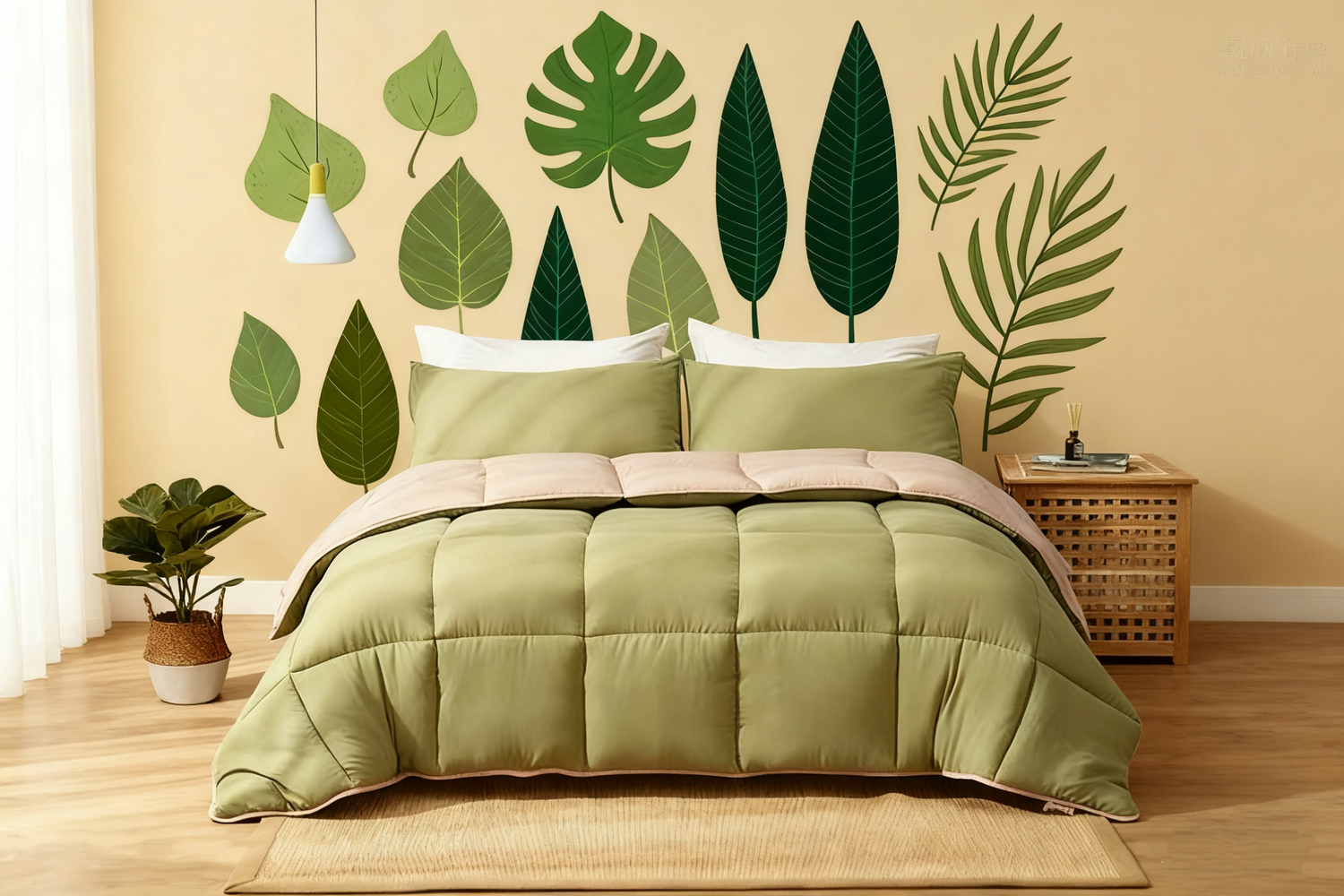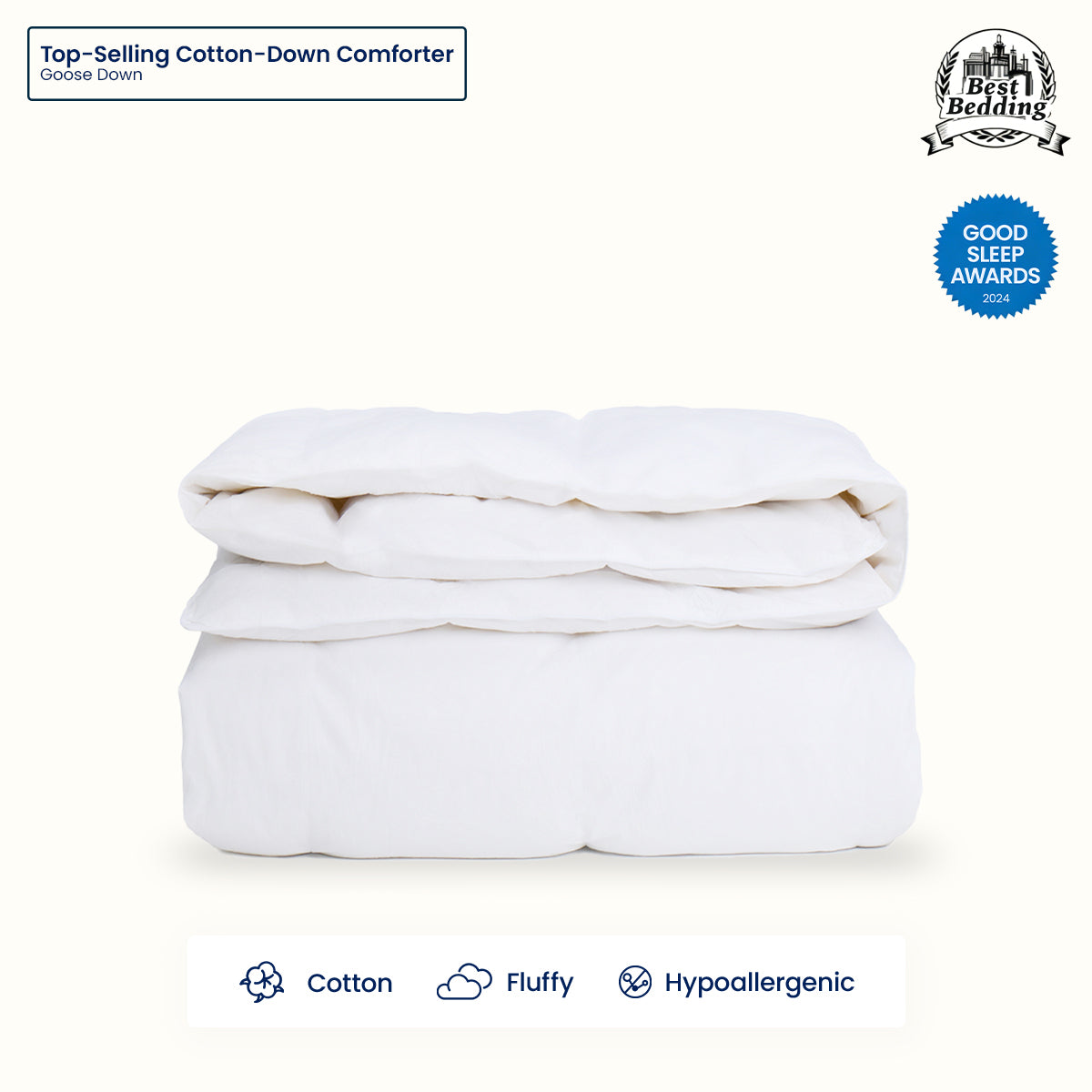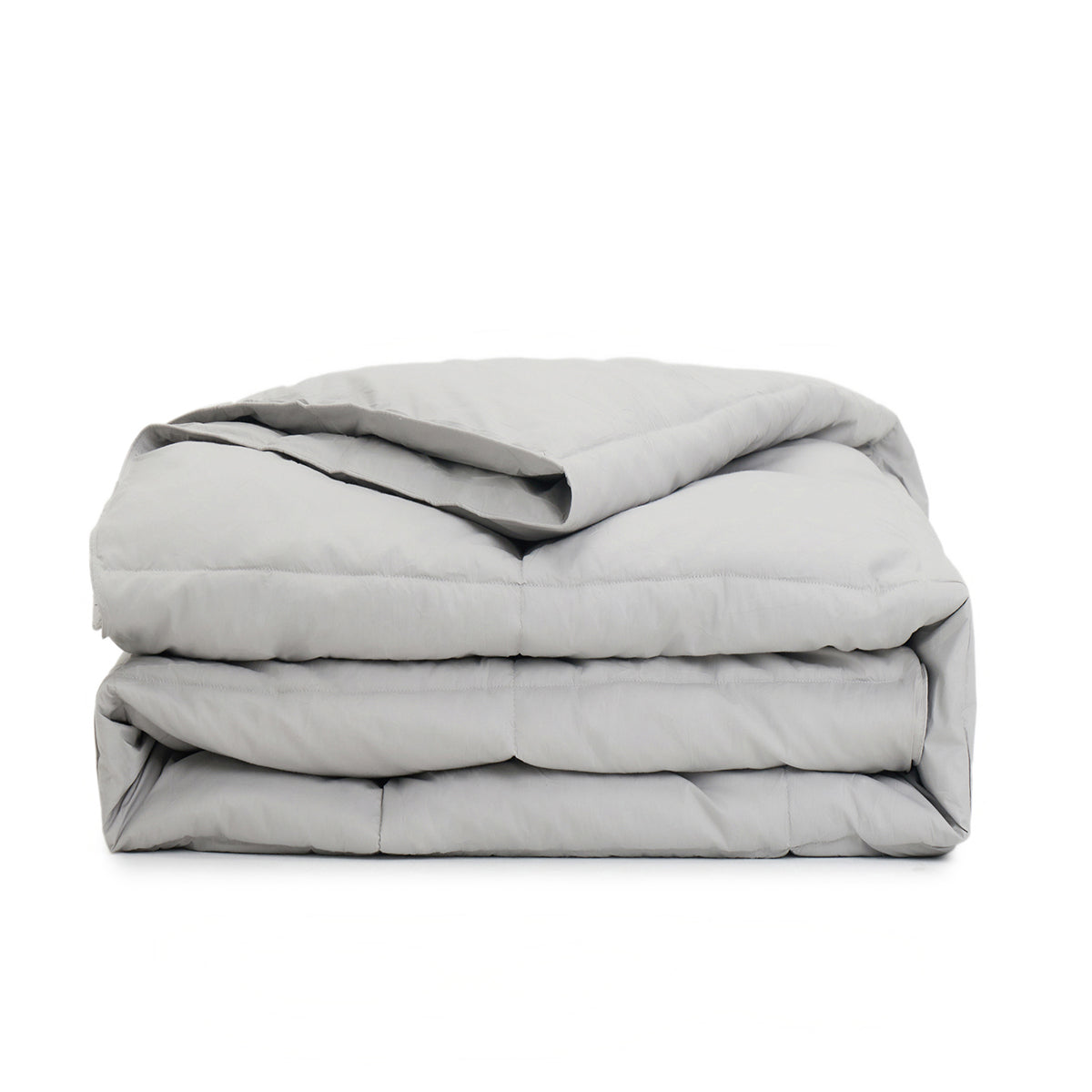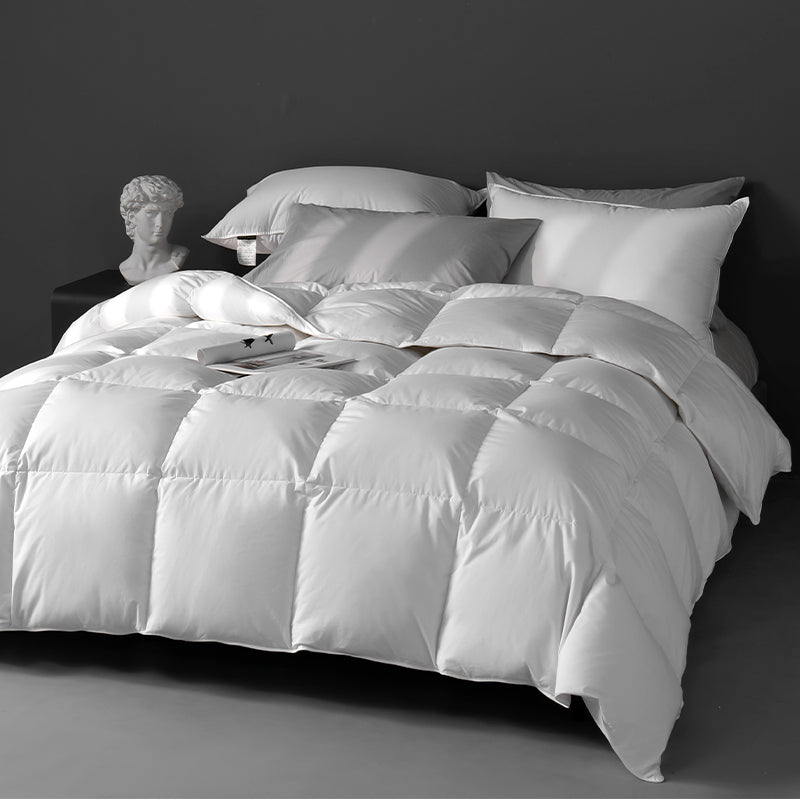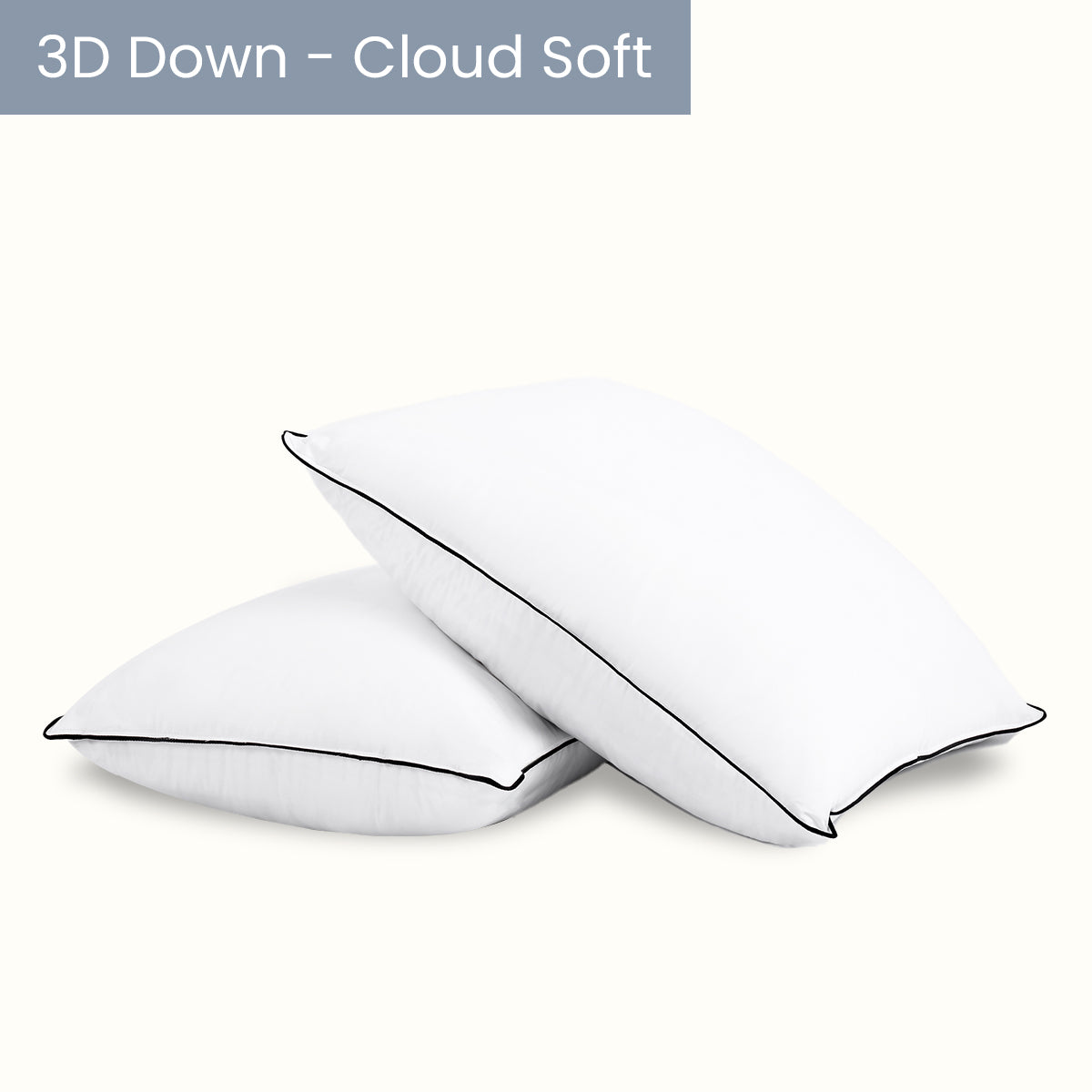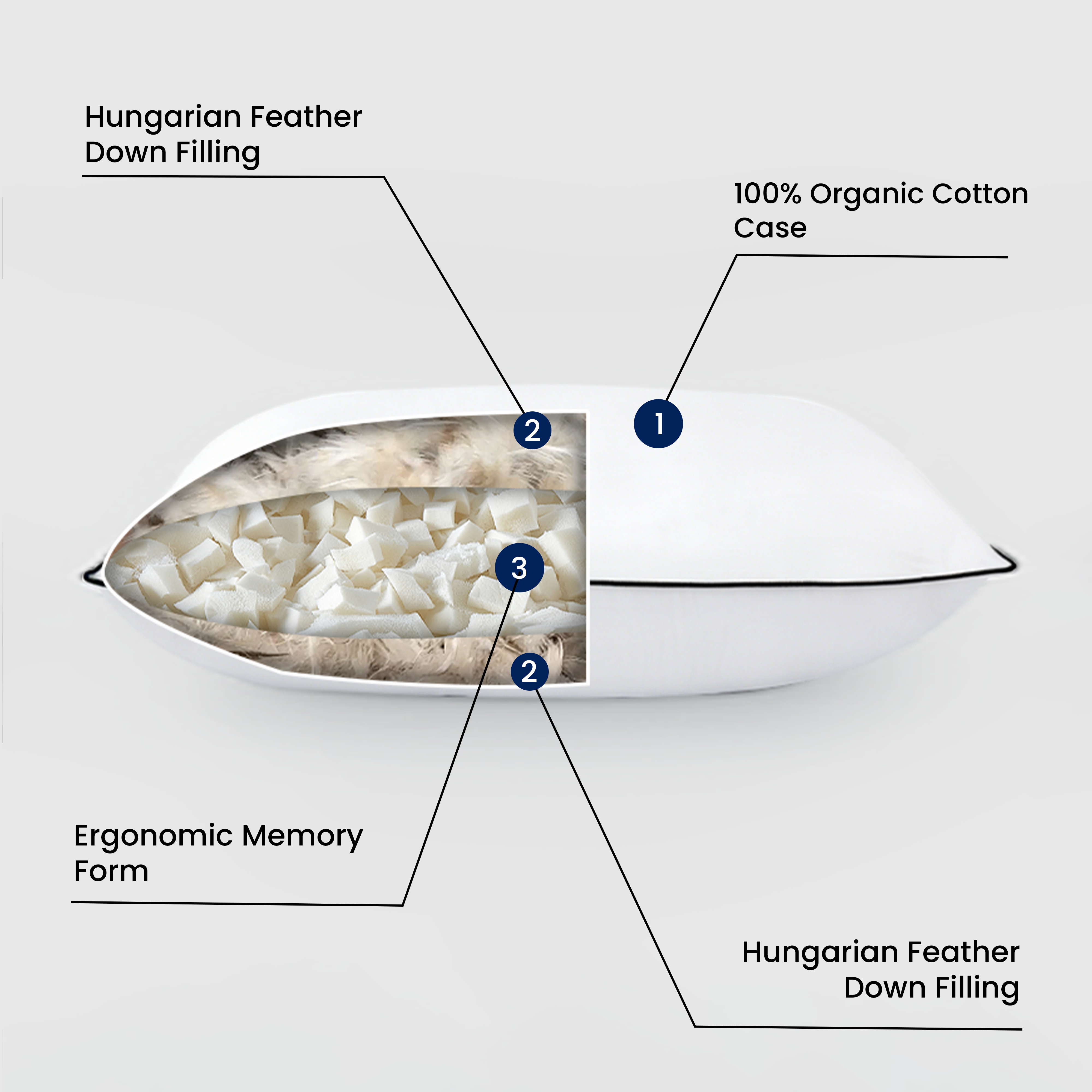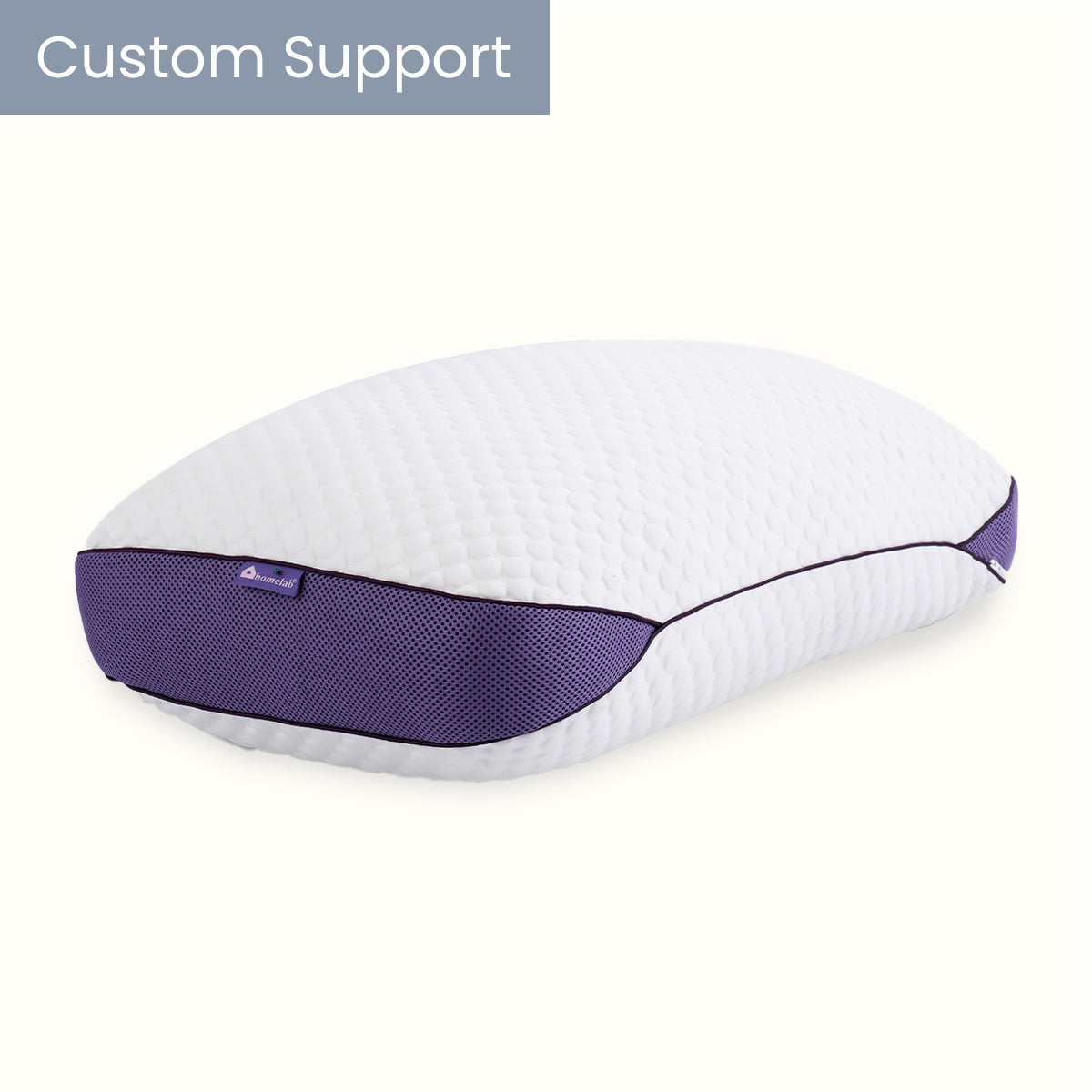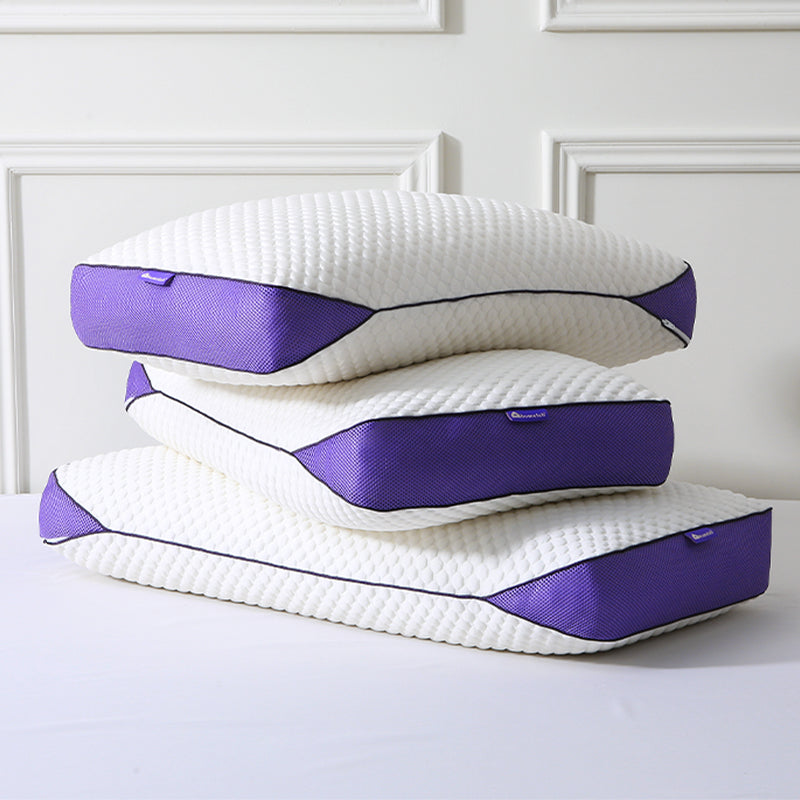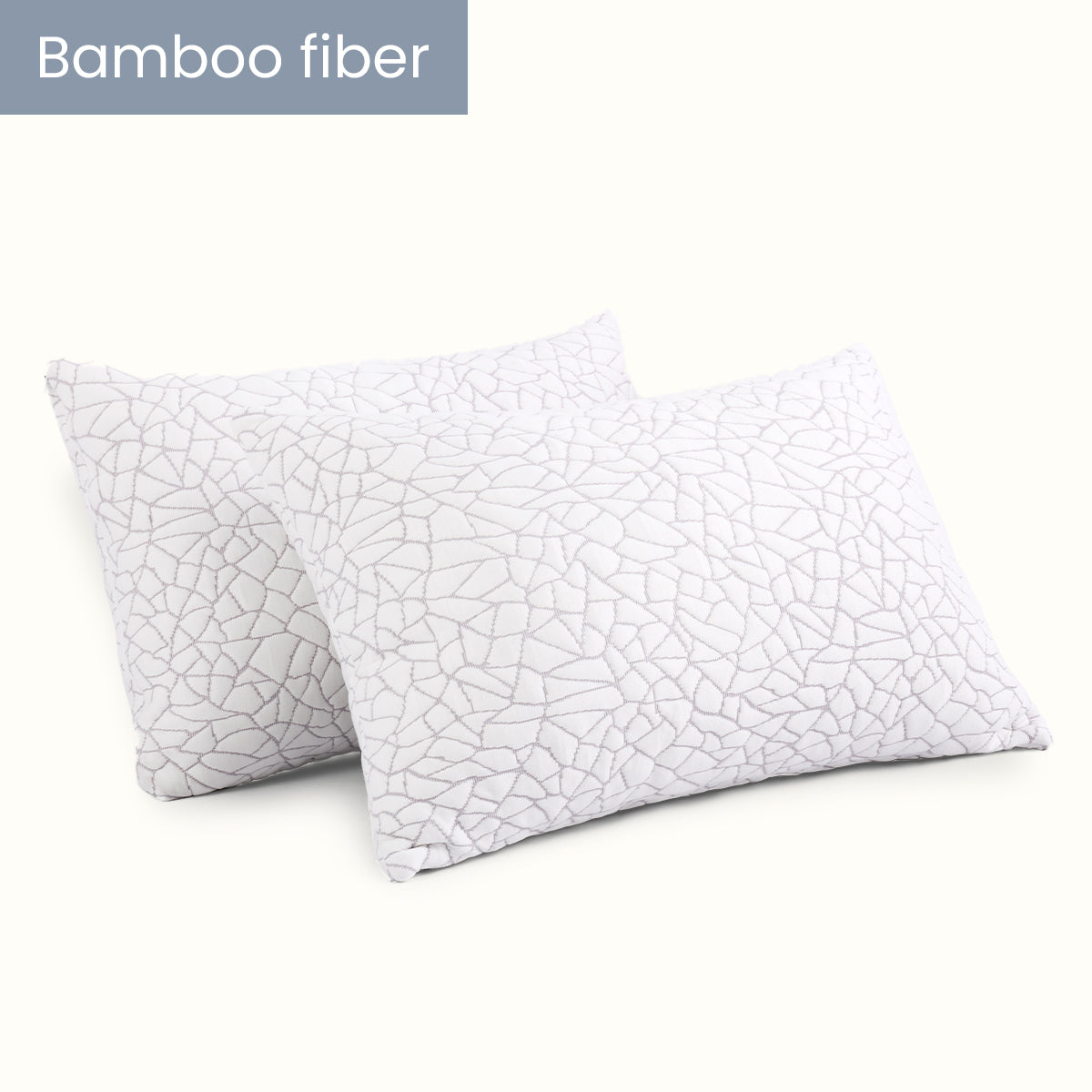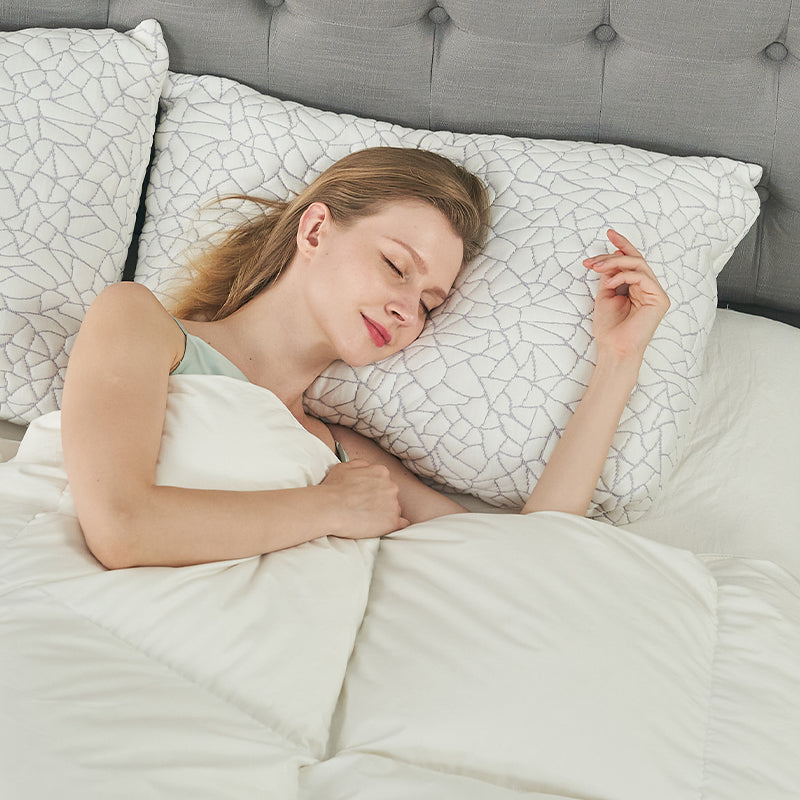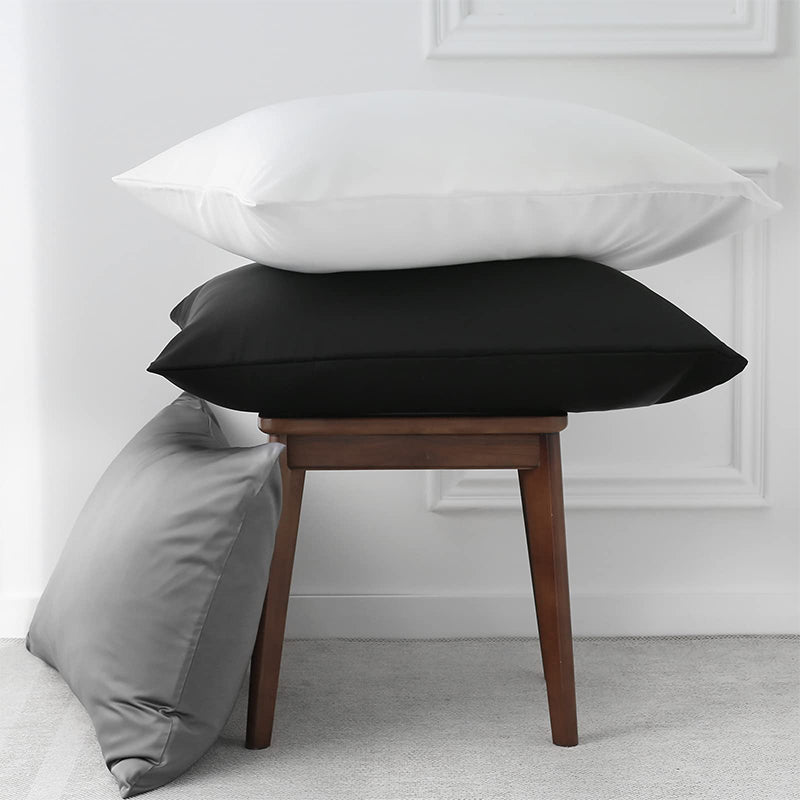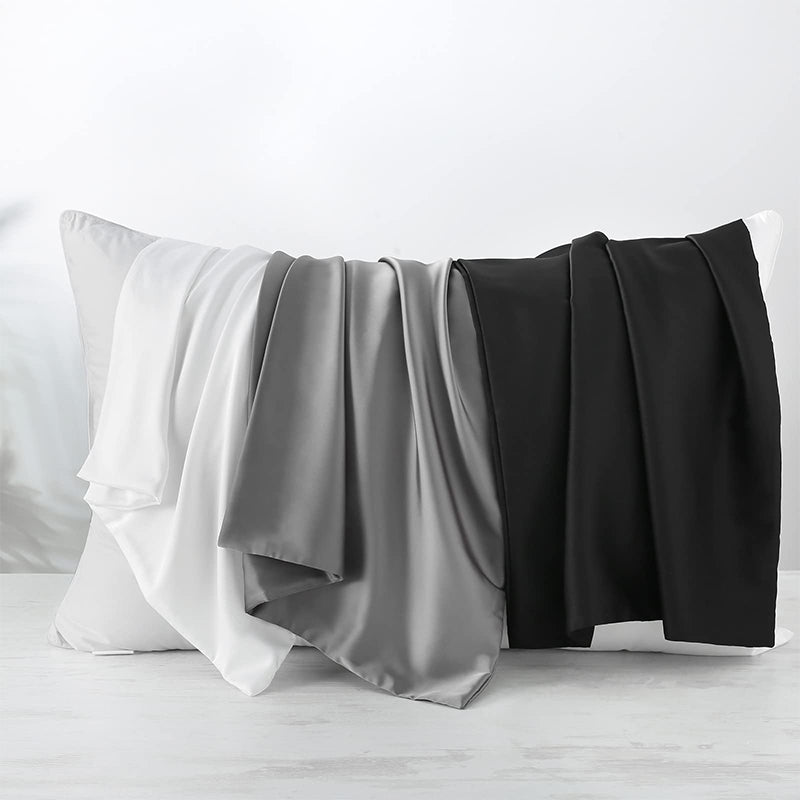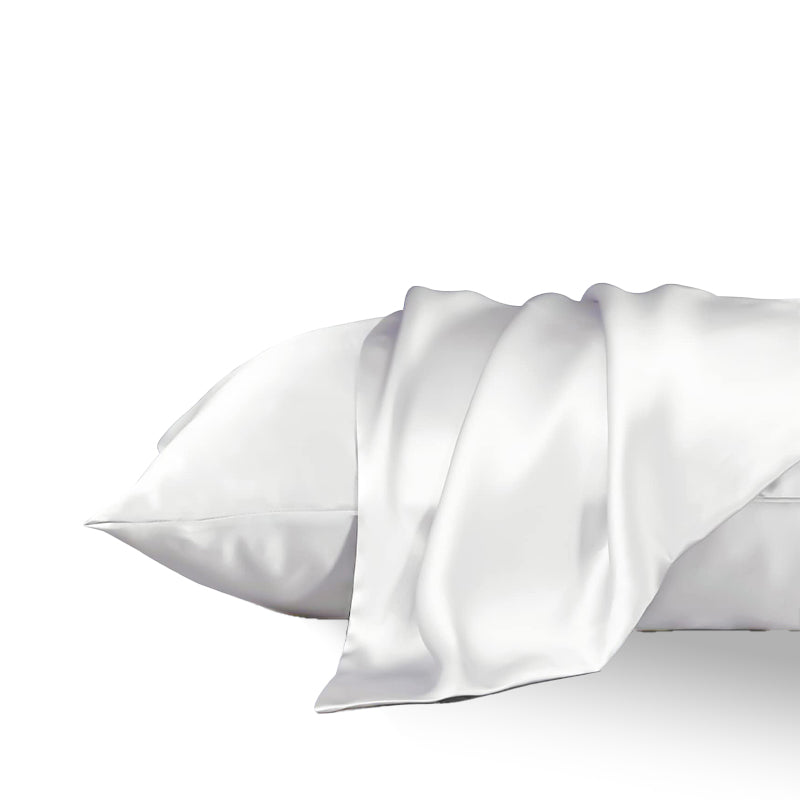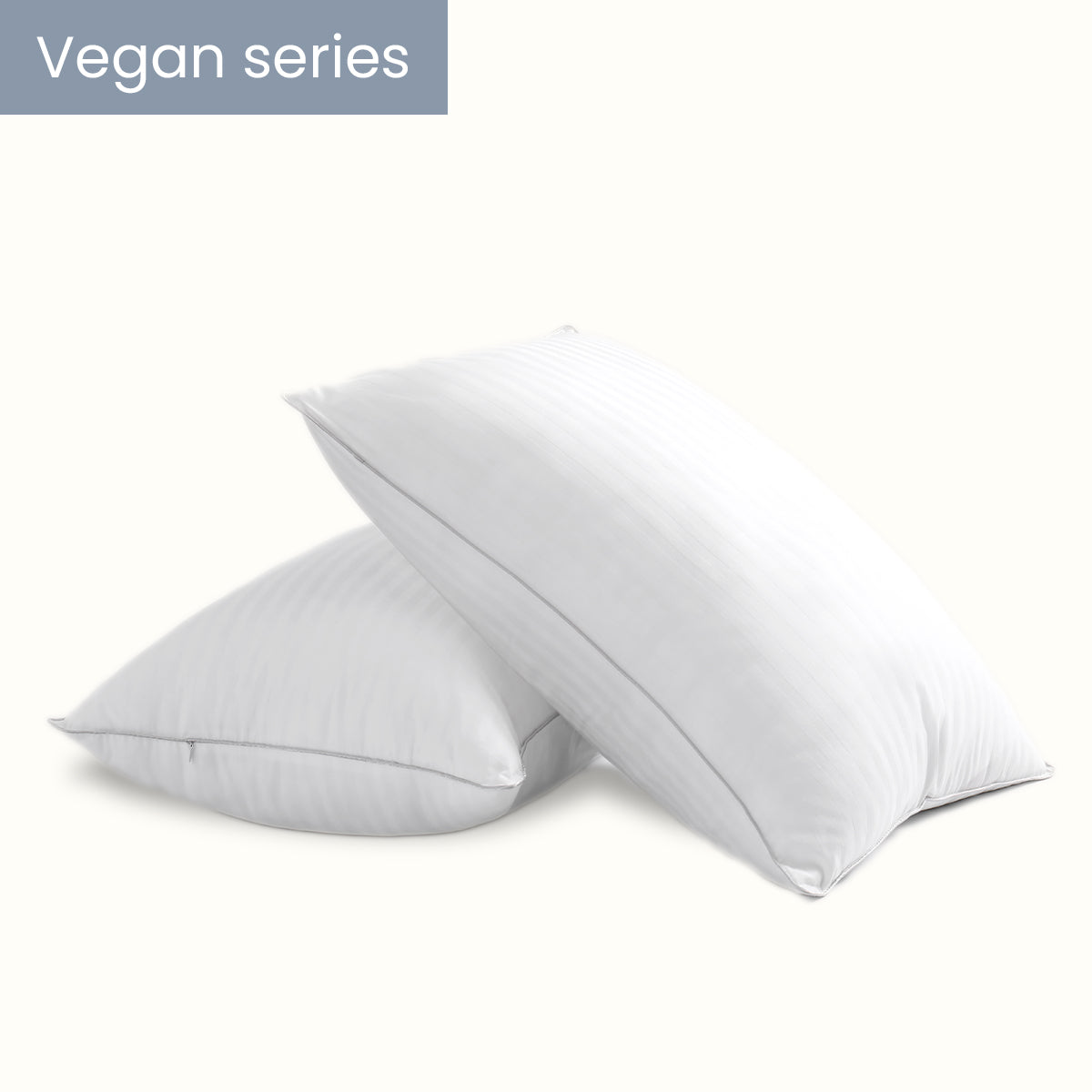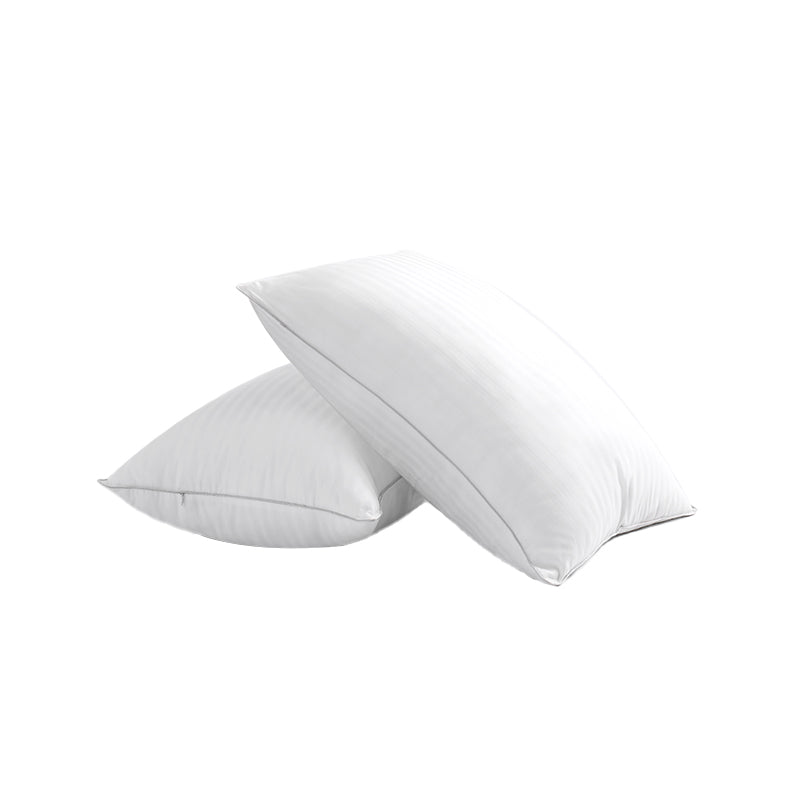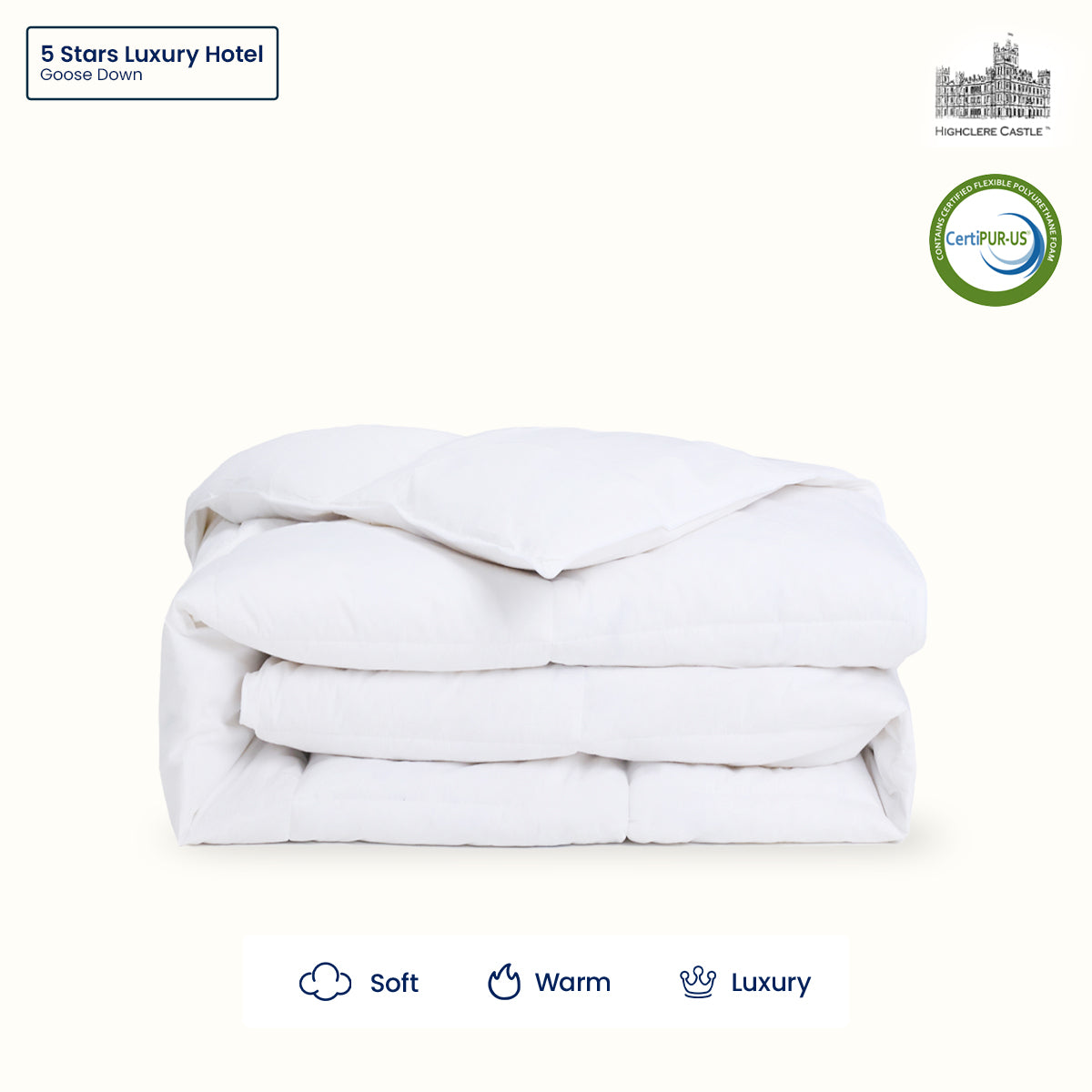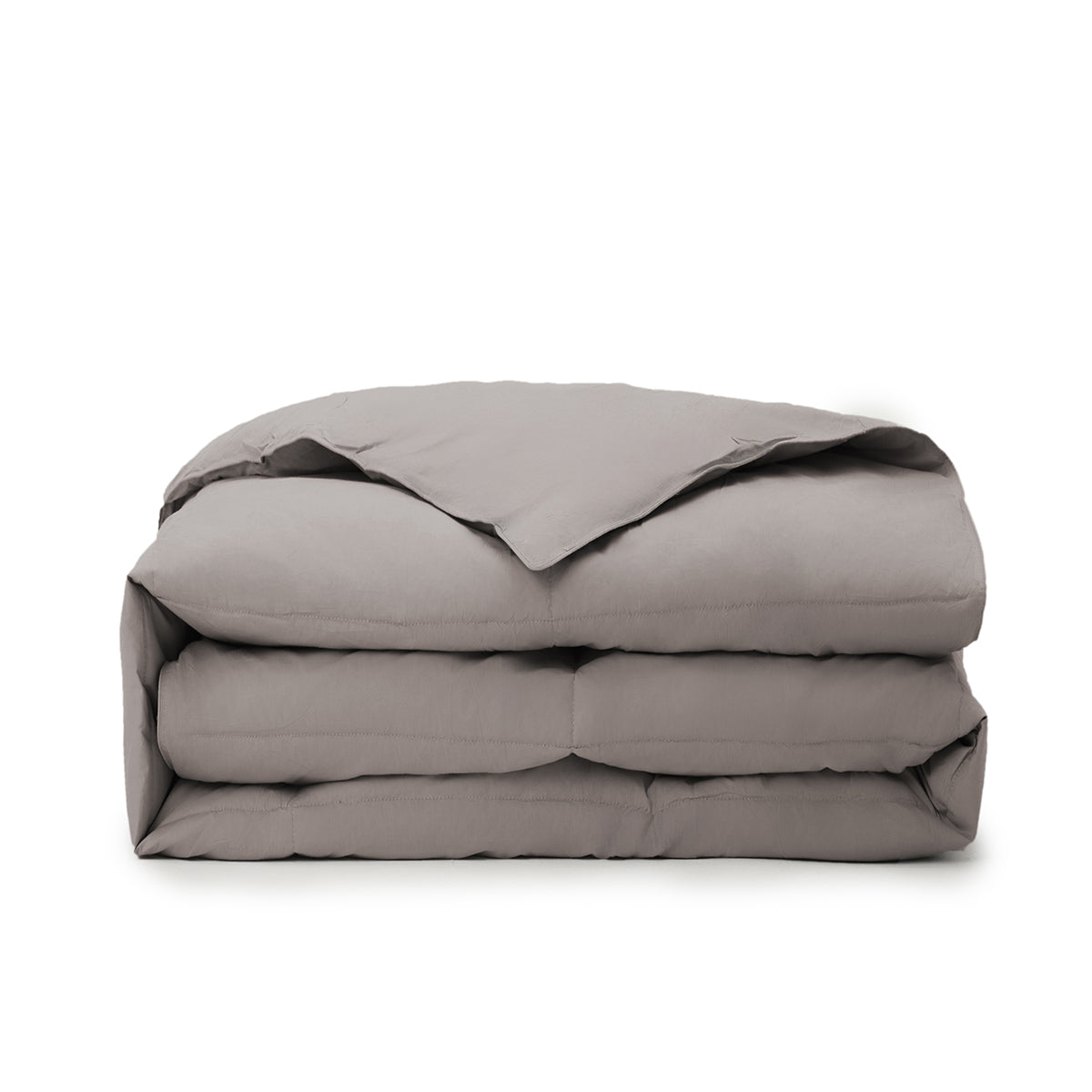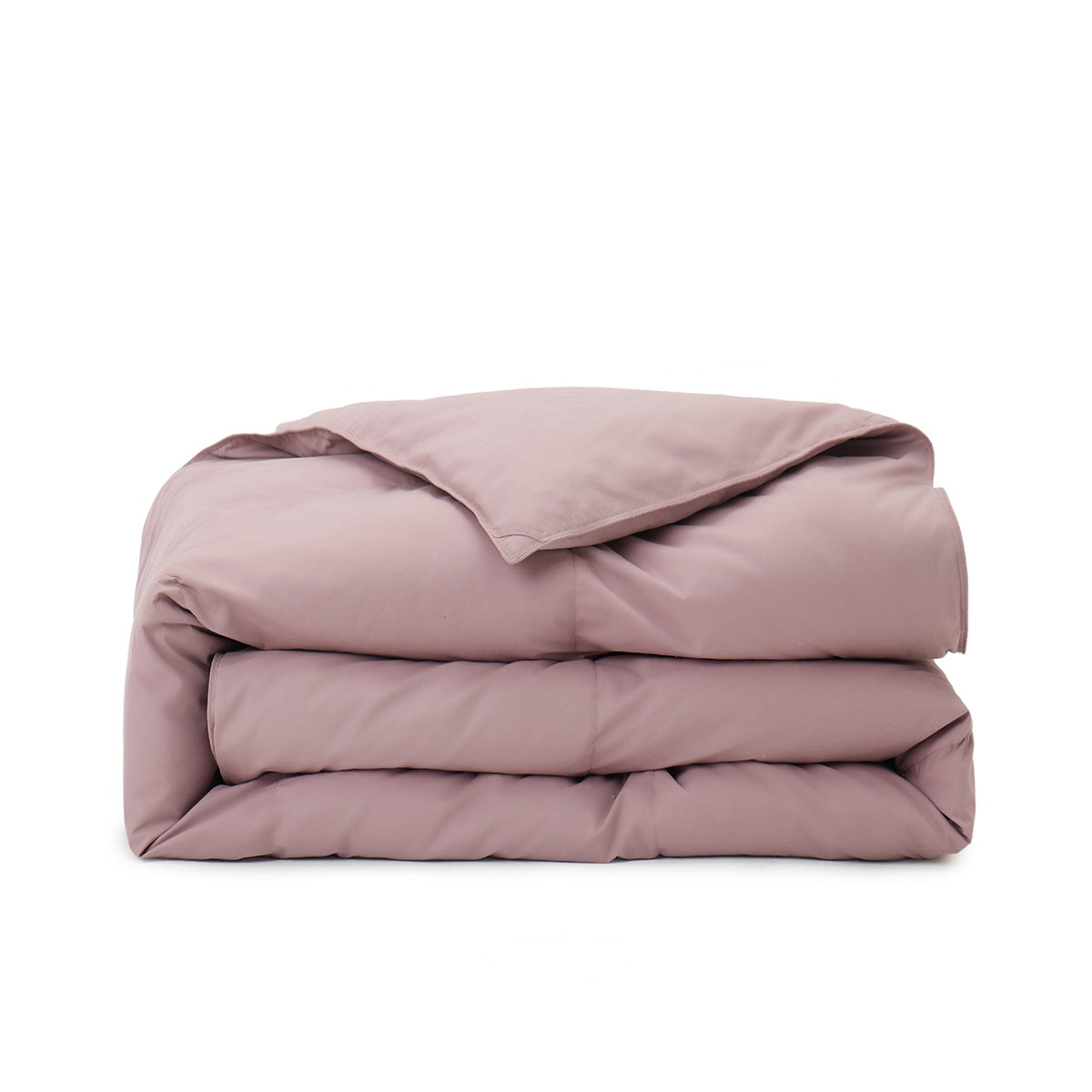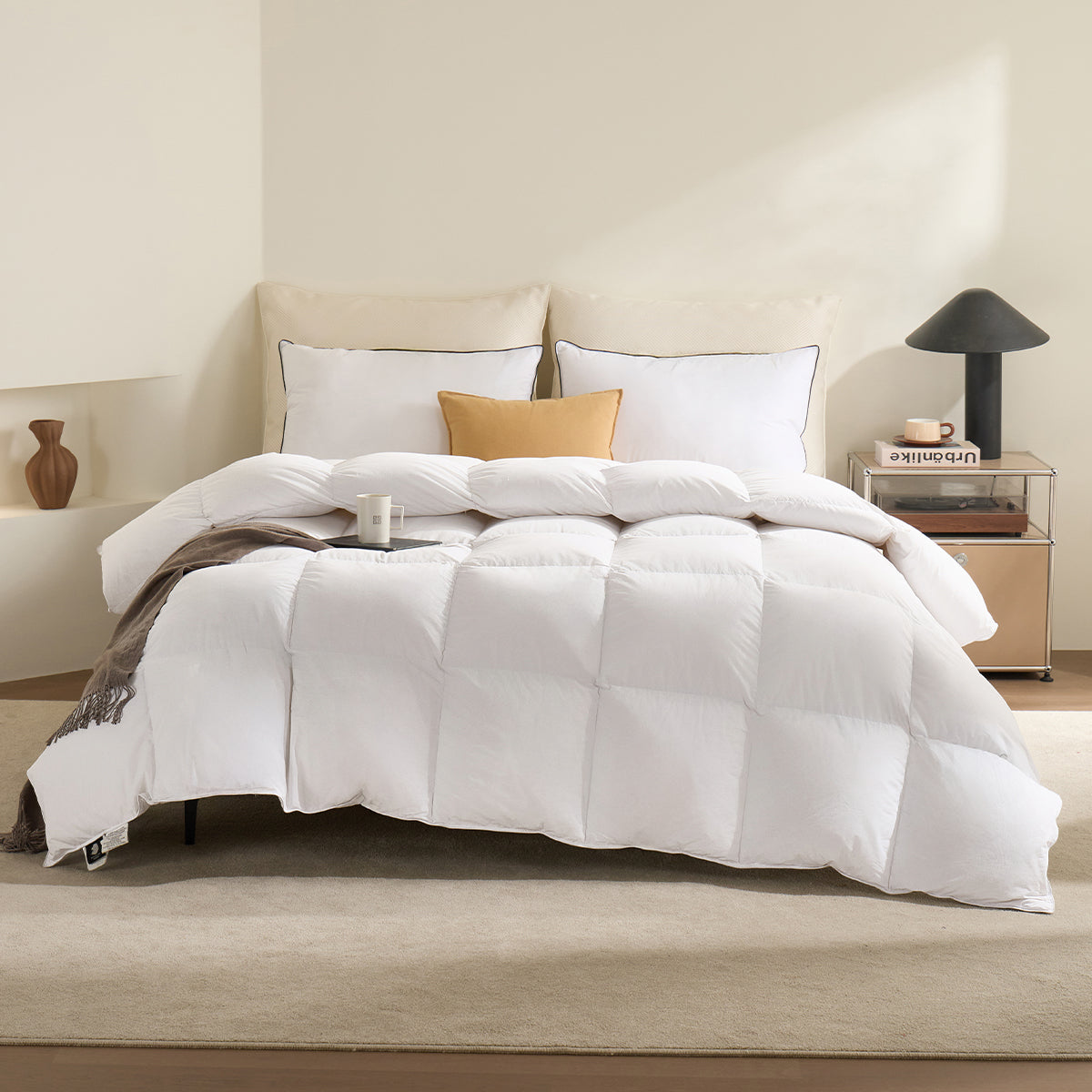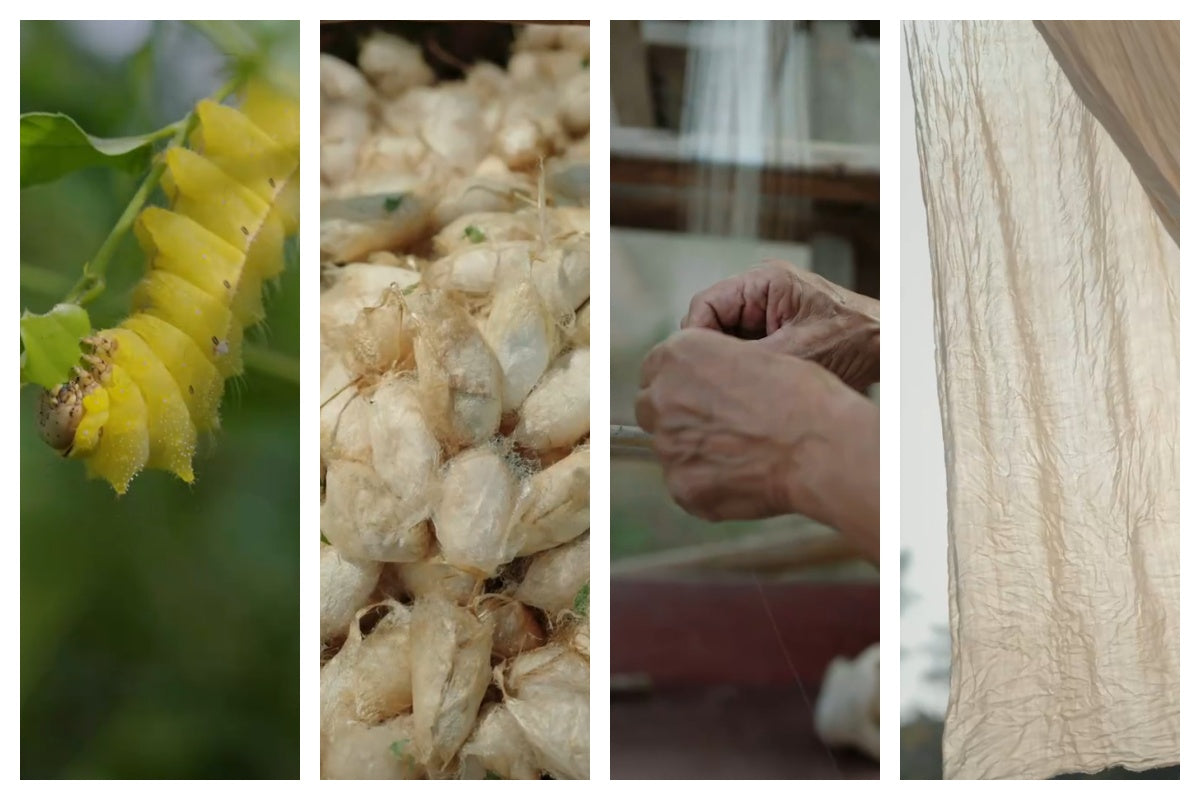For people who follow a vegan lifestyle, every choice in life needs to fit the principle of "no harm to animals and no use of animal-based materials"—even the down comforters we use every night to sleep. Traditional down comforters use feathers or down from ducks, geese, and other birds. Getting these materials may involve cruel practices like live plucking, which goes against vegans’ values of respecting life and caring for animals.
But "vegan alternatives to down comforters" (also called vegan duvets) solve this problem perfectly. They avoid harming animals and still give you a comfortable, eco-friendly sleep experience.
Why Choose a Vegan Down Alternative? It’s a Must for Vegan Values
A key goal for vegans is to avoid causing pain to animals because of their own needs. In the production chain of traditional down comforters, some companies use live plucking to get fluffy down. This hurts birds badly and makes them stressed. Even if some down comes from birds killed for meat, it still connects to taking animal lives indirectly.
Vegan down alternatives, though, completely avoid animal-based materials. Both the filling and the outer fabric use plant fibers or recycled materials. For vegans, using such a comforter means you can enjoy a warm sleep without feeling guilty about "harming animals indirectly." Your choice of comforter will match your vegan values, letting you "care for life" and "live comfortably" at the same time.
Key Materials for Vegan Down Alternatives: Great Choices in Plant & Recycled Fibers
To replace animal down while keeping comfort and usefulness, vegan down alternatives mainly use two types of high-quality materials. Both fit vegans’ desire for "eco-friendliness and no harm."
Plant Fibers: From Nature, Gentle on Skin
Plant fibers are a popular choice for filling vegan down alternatives. They come from renewable plant resources, are eco-friendly to produce, and feel good to use.
-
Tencel Lyocell Fiber: Made from sustainably grown wood (like eucalyptus) using eco-friendly processes. It feels as soft as a cloud. When you cover yourself with it, it wraps around you gently—no "heavy feeling" like some traditional down comforters. More importantly, it’s great at breathing and regulating temperature: it lets out body heat quickly in summer to keep you from sweating, and traps heat in winter to keep you warm. It’s also very gentle on skin, so even vegans with sensitive skin or allergies won’t get irritated.
-
Bamboo Fiber: Bamboo grows very fast. It doesn’t need much water or pesticides, so it’s a typical "eco-friendly" plant resource. Comforters made with bamboo fiber have natural antibacterial properties. They stop dust mites and bacteria from growing, which is perfect for vegans who care about sleep hygiene. When you use it, it keeps you warm in winter and cool in summer—no sweating or stuffiness in summer, and no cold in winter.
Recycled Materials: Reuse & Protect the Planet
Besides plant fibers, recycled materials make vegan down alternatives even more "eco-friendly." They also match vegans’ focus on "sustainable living."
-
Recycled Plastic Bottle Fiber: Old plastic bottles are cleaned, crushed, and turned into soft, fluffy fibers for filling comforters. This not only solves the problem of plastic pollution but also gives "waste" a new life. Comforters made with this fiber feel as fluffy as natural down. They’re light (no heavy feeling) and easy to clean—they won’t lose shape easily.
-
Recycled Polyester Fiber: Made from recycled polyester products (like old clothes or used polyester fabric). It has a stable structure and lasts a long time. Comforters filled with it won’t get lumpy or flat even after long use—they stay fluffy. Also, making recycled polyester uses less energy and produces less carbon than making new polyester. This helps reduce environmental burden and matches vegans’ idea of "living in harmony with nature."
Three Big Benefits of Vegan Down Alternatives: They Meet All Vegans’ Needs
For vegans, vegan down alternatives are more than just "no animal materials." They have three big benefits—animal-friendly, eco-sustainable, and healthy & comfortable—that fully meet vegans’ desire for a high-quality life.
Animal-Friendly: Protect Life from the Start
This is the most important benefit of vegan down alternatives—and the top reason vegans choose them. Making a vegan down alternative never involves harming animals. It doesn’t use live plucking, and it doesn’t use by-products from animal slaughter. Choosing one means you’re supporting "no animal cruelty" in production. It lets your vegan value of "respecting every life" show in every small detail of your life.
Eco-Sustainable: A Choice That Lightens the Planet’s Burden
Vegans often care a lot about protecting the environment—and vegan down alternatives excel at this. Growing plant fiber materials (like bamboo and sustainable wood) helps absorb carbon dioxide, clean the air, and doesn’t use much water or pesticides. Using recycled materials reduces plastic waste and old polyester pollution on land and in oceans. It also cuts down on the need to take new resources. Besides, some plant fibers (like Tencel Lyocell) can break down naturally. Even when the comforter’s life ends, it won’t burden the environment for a long time. This truly achieves "eco-friendliness from production to disposal."
Healthy & Comfortable: Keep Your Sleep Safe
Beyond matching vegan values, vegan down alternatives are just as comfortable as traditional down comforters—even better in some ways. Their materials are great at breathing, so you won’t sweat or feel damp from trapped heat while sleeping. They adjust temperature well: they give you the right warmth no matter the season or your body temperature. Also, they’re hypoallergenic and antibacterial, so they reduce irritation from dust mites and bacteria on your respiratory system and skin. This is especially good for vegans with allergies. Whether it’s the soft touch or the light feel, vegan down alternatives help vegans get high-quality sleep and stay energetic in daily life.
Vegan-Friendly Picks: Two Seasonal Vegan Down Alternatives
We’ve made two special vegan down alternatives for different seasonal sleep needs. From material selection to production, we follow the principles of "no animal materials and eco-sustainability." They fit perfectly with vegan lifestyles and give you comfortable sleep all year round.
Winter Favorite: ClimaLoft & Eucalyptus Lyocell Mixed Microfiber Comforter
Made just for cold winters, this comforter uses a scientific mix of ClimaLoft fiber and eucalyptus-based Lyocell microfiber. These two high-quality materials work together to give you a better experience than traditional winter comforters.
ClimaLoft fiber is great at trapping heat. It locks in the heat your body gives off, creating a steady warm space inside the comforter. Even if it’s freezing outside, you’ll stay at a comfortable temperature all night. Eucalyptus Lyocell microfiber makes the comforter as fluffy and light as a cloud. When you cover yourself with it, there’s no heavy, oppressive feeling. You can turn over easily—no discomfort from "heavy winter comforters."
What’s more, ClimaLoft fiber has passed 10,000+ compression tests. It’s very durable: it won’t get lumpy or lose shape even after long use, so it stays fluffy for years. Eucalyptus Lyocell microfiber keeps the gentle traits of plant fibers—it’s soft on skin and won’t irritate. Even in dry winters, it reduces static electricity and dry, tight skin. Vegans with sensitive skin can use it without worry.
From material buying to production, we never add any animal-based materials. Every comforter meets vegan standards. It lets you enjoy warm, worry-free sleep in cold winters while sticking to your values of respecting life and protecting the environment.
Abandoning complicated colors, it adopts warm color schemes that are close to nature. Each style exudes a soft atmosphere, easily integrating into bedrooms of different decors:
-
Raspberry Red × Charcoal Black: One side is soft and vivid raspberry red, like a ray of warm sun in autumn and winter, brightening up the bedroom; the other side is calm and elegant charcoal black, understated yet textured, meeting the matching needs of different scenarios.

-
Bean Green × Rice White: One side is fresh and elegant bean green, carrying the healing vibe of natural plants to ease the tiredness of the day; the other side is pure and soft rice white, simple and clean, creating a quiet and relaxing sleeping environment.

The double-sided, dual-color design makes it not just a warm autumn and winter quilt, but also a "style highlight" in the bedroom – keeping you warm when covered and pleasing to the eye when looked at.
Summer Favorite: 100% Bamboo-Derived Rayon Comforter
For hot summer nights, this comforter—made with 100% bamboo-derived rayon—is a "sleep cooling hero" for vegans.
Bamboo is a highly sustainable plant. It doesn’t need much pesticides or water to grow, so it reduces environmental burden from the start. The rayon made from bamboo is much more breathable than traditional cotton. It quickly lets out heat and moisture your body produces while sleeping. You won’t toss and turn from sweating or feeling sticky—your bed stays cool and dry all night. Even on hot evenings, it feels like you’re sleeping under a tree in the shade.
The fabric feels amazing too—it’s as smooth and soft as silk. When it wraps around your skin, it gently eases the tiredness and stress of the day. It helps you fall into deep sleep faster and improves your sleep quality. Also, bamboo-derived rayon has natural antibacterial properties. It stops dust mites and bacteria from growing, reducing skin problems and respiratory allergies caused by hot, humid summer weather. This builds a "health shield" for vegans with sensitive bodies.
We follow strict eco-friendly standards in production: no animal materials, no harmful chemicals. You can enjoy comfortable sleep while doing your part for the planet’s sustainability. It’s truly "sleep comfortably, live with peace of mind."
For vegans, vegan down alternatives are more than just "warm comforters." They’re symbols of living by vegan values, protecting animal lives, and supporting eco-sustainability. These two seasonal comforters we’ve made use the power of plants and high-quality fibers. They break the old idea that "you need animal down for comfortable sleep." No matter the season, every vegan can enjoy a wonderful sleep experience in harmony with nature and life.





